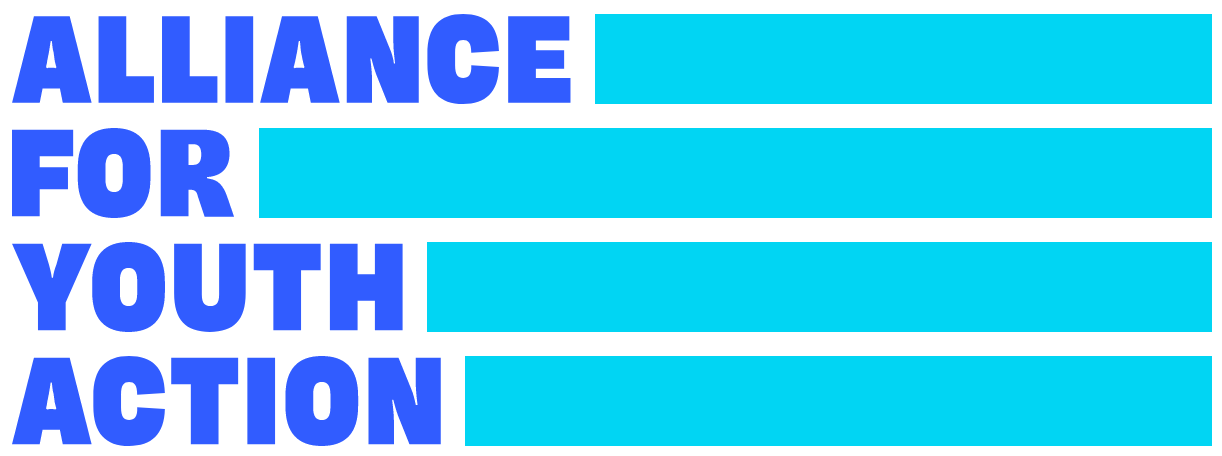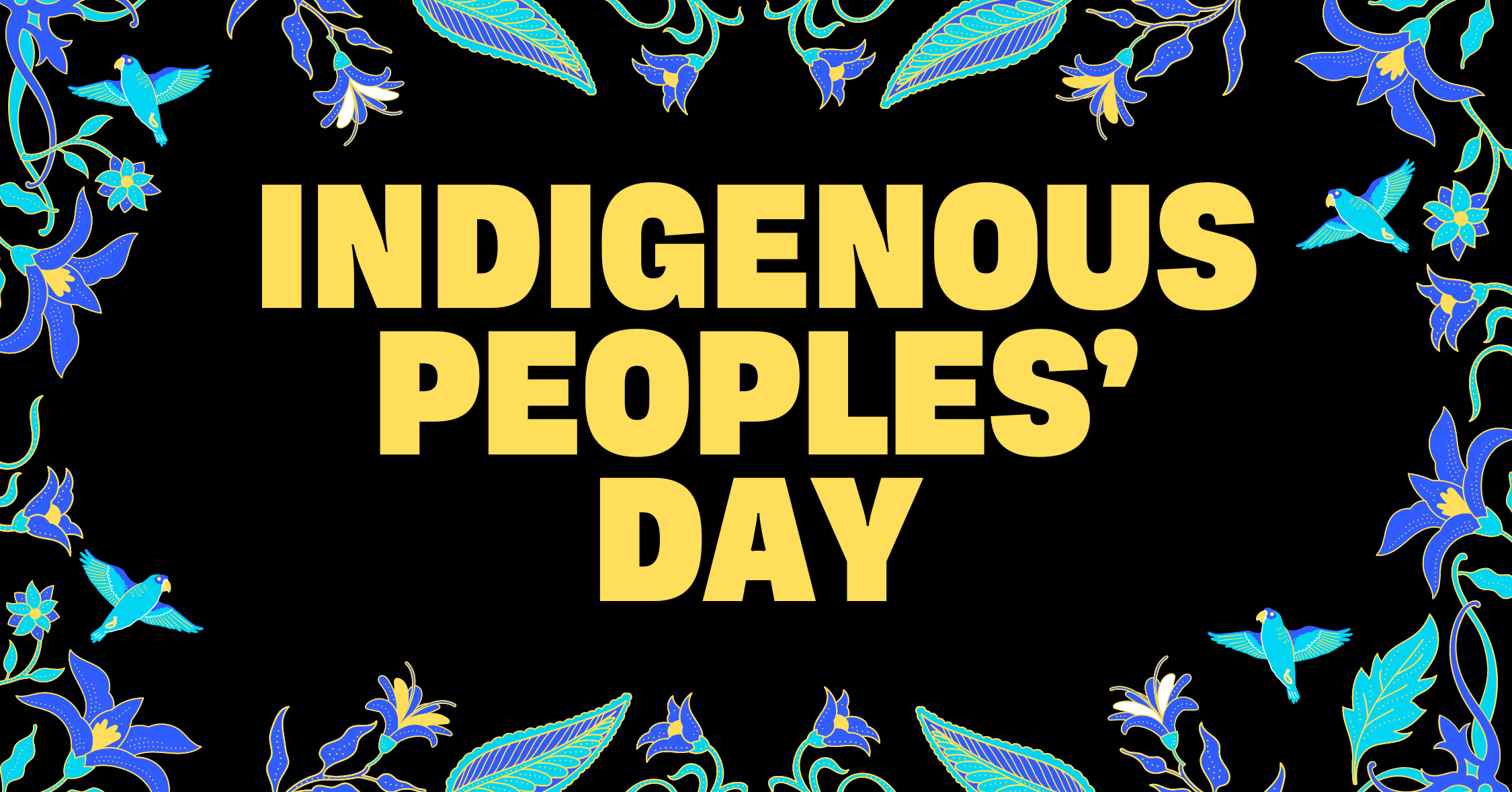Today, across Indigenous lands, a profound truth endures: our people’s fight for survival is a centuries-old battle against white supremacy and colonialism. Our resistance, resilience, and pride are not just acts of survival; they are revolutionary. As a Black Indigenous leader from the Oneida Nation of Wisconsin and the Lac Courte Oreilles Band, I carry forward this legacy of resistance every single day as I lead the Alliance for Youth Action, a national network pushing for a just, equitable, and liberated future.
In 2024, the same spirit of resistance pulses through the young people in our network as they organize with passion. They are mobilizing for access to higher education, demanding reproductive justice amid relentless attacks on abortion rights, and holding institutions accountable for their failures to serve Black and Brown communities. In 2024, as climate disasters devastate Indigenous lands and Supreme Court rulings threaten our sovereignty, it’s clear that our fight for survival is far from over. From Alaska to Arizona, our lands are the frontlines of climate change, yet our voices are often silenced in the halls of power and missing within progressive organizing and philanthropy.
Make no mistake: Colonialism never disappeared; it evolved. It lingers in the air like smoke from a fire meant to destroy us, permeating every institution that still upholds the ideals of manifest destiny. It’s in our textbooks that glosses over our histories, in policies that continue to erase our people, and in political debates that ignore us as if we no longer exist.
The knowledge gap about Indigenous history and current struggles remains staggering. Many Americans have never had a meaningful relationship with an Indigenous person, and some are unaware that the cities, states, and rivers they call home bear Indigenous names. This gap must be closed if we are to ensure the survival and prosperity of future generations of Indigenous people. Indigenous Peoples’ Day is not a symbolic gesture; it is a call to confront these gaps and take action.
But this is not just about broken treaties and historical injustices. It’s about the systemic decisions, legislative, economic, and social, that continue to remove wealth, health, and opportunity from Indigenous communities. Let’s remember the Dawes Act of 1887 did more than strip away land, it sought to strip away our identities. It was a calculated move to impose capitalist ideals on Indigenous communities, severing us from the land we had lived on for thousands of years. Today, in 2024, our lands are still being stolen, not by force, but by legal loopholes and policies that deny us control over our resources.
Even citizenship, something most Americans take for granted, wasn’t granted to Indigenous people until 1924, and it took another 44 years for the Indian Civil Rights Act to ensure basic protections under the Bill of Rights. Despite citizenship, Indigenous people continued to be denied fundamental rights until 1978. We couldn’t even use traditional medicines in our ceremonies, as the American Indian Religious Freedom Act hadn’t yet been passed. These are not distant historical facts; they are a reminder of the ongoing fight for human rights that Indigenous people have been forced to wage for centuries.
Today, Indigenous women face a modern crisis of violence that echoes the brutality of the past. Four out of five Indigenous women will experience violence in their lifetime, and in some areas, they are murdered at rates up to ten times higher than the national average. A 2023 update from the National Missing and Unidentified Persons System reported over 5,700 cases of missing Indigenous women and girls, yet fewer than 120 were included in the U.S. Department of Justice’s database. This systemic failure to properly account for and address these cases is a stain on our nation’s conscience, and we must demand justice.
Here is the reality: the life expectancy for Indigenous people born in 2021 is just 65.2 years, 11.2 years less than for non-Hispanic White Americans. We die from preventable illnesses like diabetes, heart disease, and liver disease because the systems in place, like the Indian Health Service, which is grossly underfunded at $6.9 billion in 2024, fail us. This is not just a statistic. This is our people. Our mothers, fathers, and children, are gone too soon because of a government that refuses to invest in our survival. This discrepancy is not just a failure of funding; it’s a failure of moral responsibility.
The Indian Health Service, which provides healthcare to 2.6 million people from over 570 tribal nations, remains grossly underfunded. In 2024, the federal government allocated just $7 billion to the Indian Health Service despite calls for much-needed reform. Without proper funding, Indigenous communities will continue to experience disproportionate rates of preventable deaths, particularly as new health challenges like long COVID and rising mental health crises take root.
The systemic racism that has attempted to erase my people from history has a lasting impact far beyond health or violence. More than a quarter of Indigenous people live in poverty, the highest rate of any racial group in the country. Indigenous households still have only 8 cents of wealth for every dollar held by White households, and the educational attainment gap persists, with Indigenous people having the lowest rates of high school and college graduation. Despite this, Indigenous voices are consistently missing from political debates, particularly in this 2024 election cycle. It’s not enough to place us in the “other” category in statistical data; that erasure compounds the violence and aids in eliminating what some still consider the “Indian Problem.”
Indigenous lives have been in a state-manufactured crisis for centuries, but we continue to resist. We continue to speak our languages, practice our traditions, and refuse assimilation as a means of survival. Our resilience is our strength, and it will carry us into the future. The next seven generations will continue the legacy of our ancestors, building on the strength and wisdom of those who came before them.
On this Indigenous Peoples’ Day, let your commitment to justice be more than symbolic. Dive deeper. Learn more. Speak up. Donate to Indigenous-led organizations. Fight for policies that return land to tribal nations, that fund Indigenous health care fully, that protect our women from violence. We are still here, and our resistance will continue, but it will be stronger with you beside us, not as an ally, but as a co-conspirator in the fight for Indigenous liberation.
How can you help?
- Be mindful of your language. Words matter. Avoid phrases like “low man on the totem pole” or “having a powwow,” which diminish the sacred cultural significance of these practices.
- Take action. Support campaigns like the Coalition to Stop Violence Against Native Women or organizations advancing Native political leadership like the Center for Native American Youth and the Native Organizers Alliance.
- Donate to organizations like Advance Native Political Leadership and Illuminative, which are working to elevate Indigenous voices in politics and philanthropy.

